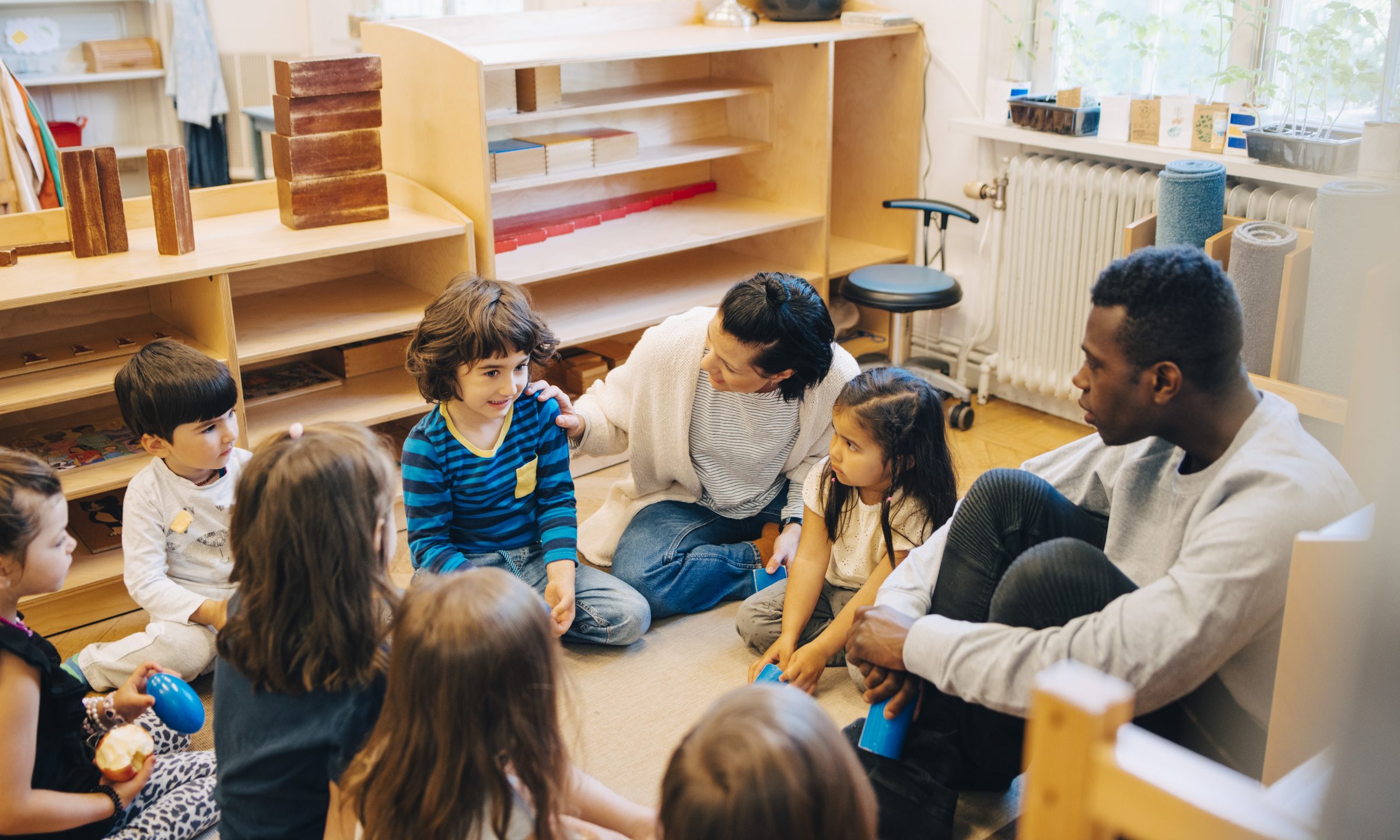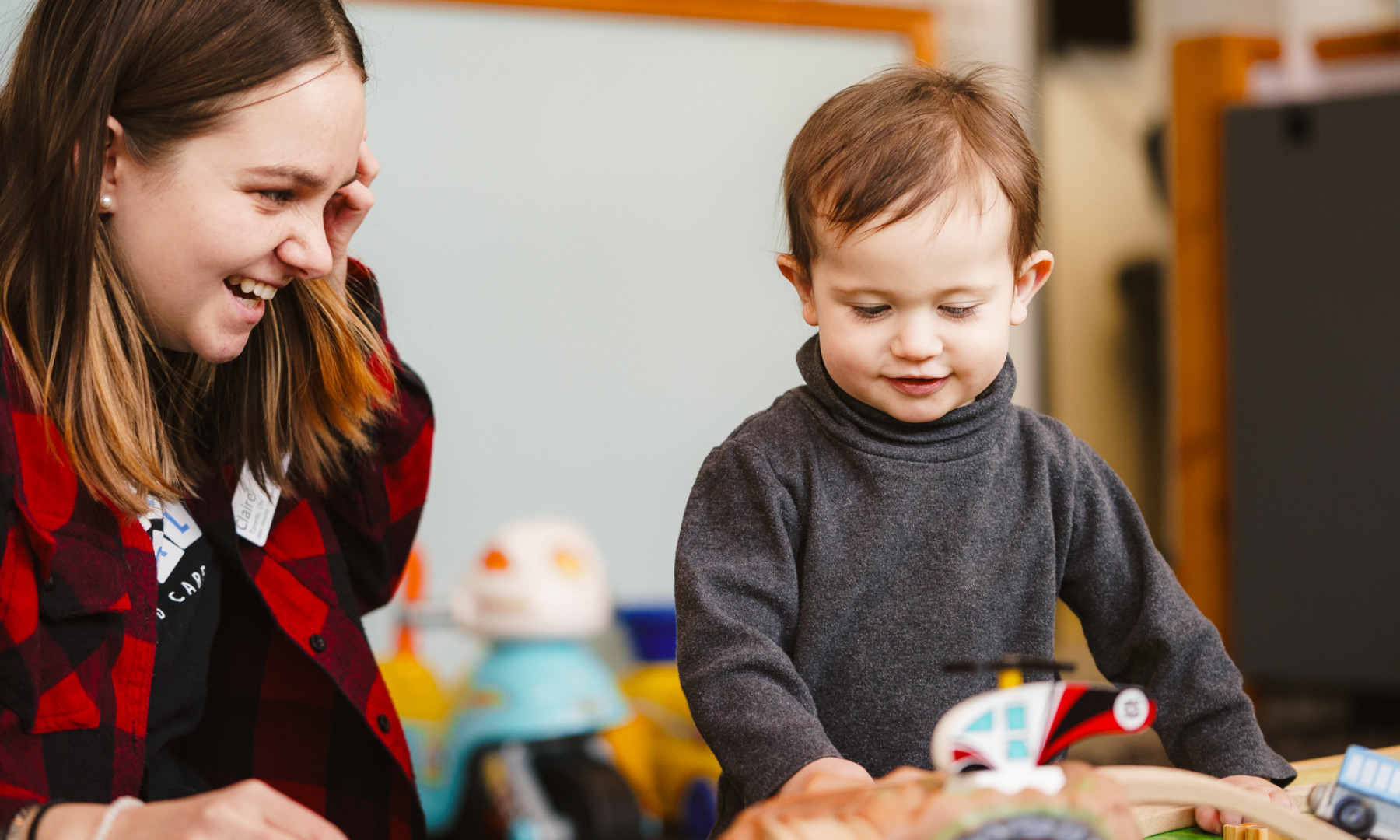The Function of Daycare in Cultivating Your Young child's Cognitive and psychological Abilities With Structured Play and
The function of daycare in nurturing a toddler's cognitive and psychological growth is usually taken too lightly, yet it offers as an essential atmosphere for structured play and instructional tasks. With thoroughly developed experiences and communications, caregivers promote crucial abilities such as emotional understanding and analytical. These fundamental elements not only improve a youngster's capacity to get in touch with peers however additionally foster resilience and versatility in different scenarios. Understanding the nuances of exactly how these dynamics unravel elevates important concerns regarding the lasting influence of early day care experiences on individual development and social integration. What might that imply for future advancement?
Significance of Organized Play
Structured play is a crucial element of young child growth, as it gives a structure whereby kids can participate in significant interactions and finding out experiences. This kind of play is intentionally created to cultivate various developing skills, such as cognitive, social, and physical capacities. By getting involved in organized activities, kids discover to follow rules, take turns, and accept peers, every one of which are crucial for their social skills.

Furthermore, structured play frequently includes educational aspects, such as counting, shade recognition, and language growth, flawlessly incorporating finding out into fun activities. This strategy not just records young children' focus however additionally strengthens vital concepts in a satisfying manner. On the whole, structured play contributes in promoting a well balanced development, furnishing toddlers with the fundamental abilities required for future understanding and social interactions.
Emotional Advancement in Daycare
Childcare environments play a vital duty in cultivating emotional development in young children. These setups provide kids with possibilities to interact with peers and caregivers, facilitating the development of vital social-emotional skills. Through regular communications, kids discover to recognize and express their feelings, such as unhappiness, irritation, or delight, which is essential for their psychological maturity.

In addition, the organized environment of childcare permits kids to experience a range of feelings in a risk-free space. They discover to manage feelings of splitting up anxiety when transitioning from home to daycare and establish durability as they browse brand-new partnerships and experiences. Generally, the psychological development promoted in day care not just advantages toddlers throughout their developmental years but likewise lays the foundation for healthy and balanced social relationships and emotional well-being throughout their lives.
Cognitive Abilities Through Tasks
Through involving in a selection of tasks, kids in daycare settings can significantly boost their cognitive abilities. Structured play and academic tasks are critical in promoting cognitive advancement, as they offer possibilities for expedition, analytical, and crucial thinking. Tasks such as puzzles, foundation, and memory video games test kids to assume creatively and practically, fostering necessary abilities like spatial awareness and pattern acknowledgment.
In addition, interactive storytime sessions encourage language advancement and comprehension. By paying attention pop over here to stories, kids find out to process details and engage their imaginations, which boosts their narrative abilities and vocabulary. In addition, hands-on activities including crafts and arts promote fine motor skills while likewise motivating self-expression and creative thinking.
Sensory play, such as sand or water activities, permits young children to try out various textures and products, promoting inquiry-based discovering. These experiences not only enhance cognitive capabilities however likewise impart a sense of inquisitiveness regarding the globe around them - baby daycare near me. In general, the varied range of cognitive tasks given in day care environments plays a critical role fit a young child's capacity to think critically, address troubles, and involve meaningfully with their surroundings
Social Links and Interaction
In a caring setting, young children normally create social links and involve in communications that are vital for their interpersonal and psychological development. Childcare setups offer a distinct chance for kids to communicate with peers, fostering crucial social abilities such as sharing, teamwork, and conflict resolution. These communications help kids learn to browse their emotions and comprehend the point of views of others, which are important components of emotional intelligence.
Via structured play and group activities, toddlers are urged to interact their thoughts and feelings, improving their verbal abilities and promoting compassion. Involving with peers also presents them to varied social norms and behaviors, improving their understanding of social characteristics. Constant communication with other youngsters aids to develop a feeling of area, giving a support system that is useful for emotional growth.
As toddlers get involved in joint tasks, they discover the relevance of arrangement, synergy, and persistence. These fundamental social abilities are vital as they plan for future partnerships, both in educational setups and past. Eventually, the social links formed in visit this site childcare play a significant function in shaping a toddler's capacity to interact favorably and successfully with others throughout their lives.
Role of Caregivers in Growth

Caretakers play an essential function in fostering young child advancement, specifically in the context of the social interactions they experience in day care settings. These professionals provide a nurturing environment where young children can explore their feelings and cognitive capacities with structured play and . By involving in purposeful conversations, caretakers sustain language advancement and improve social abilities.
In addition, caregivers version proper actions and emotional feedbacks, aiding kids find out compassion and problem resolution. Their presence additionally develops a complacency, which is vital for kids to with confidence explore their surroundings and engage with peers.
In enhancement to social and emotional assistance, caregivers are crucial in applying educational curricula that advertise cognitive development - daycare near me for infants. They present age-appropriate tasks that stimulate inquisitiveness, essential reasoning, and problem-solving skills. This structured method makes sure that toddlers not just enjoy their play however also gain fundamental expertise crucial for future knowing
Ultimately, the high quality of caretaker communications dramatically affects a toddler's overall advancement. By fostering a supportive and appealing ambience, caretakers assist prepare for healthy and balanced emotional and cognitive development, equipping youngsters with vital skills for basics their lifelong journey.
Verdict
Finally, daycare works as an important setting for cultivating cognitive and emotional growth in toddlers. Through structured play and , children experience substantial growth in their capacity to recognize and share emotions, establish vital believing skills, and form crucial social connections. The role of caregivers contributes in assisting in these experiences, ensuring that each child take advantage of a nurturing environment that promotes lifelong psychological well-being and cognitive advancement.
The function of day care in nurturing a young child's psychological and cognitive advancement is commonly underestimated, yet it serves as an essential setting for organized play and instructional activities. In general, structured play is important in promoting a balanced development, equipping young children with the fundamental abilities needed for future learning and social interactions.
Day care settings play a crucial role in promoting psychological growth in young children. On the whole, the psychological advancement fostered in daycare not only advantages toddlers throughout their developmental years however additionally lays the foundation for healthy and balanced interpersonal relationships and psychological well-being throughout their lives.
Through structured play and group activities, toddlers are motivated to communicate their sensations and ideas, improving their verbal skills and promoting compassion.